You’ve devoured The Hunger Games trilogy and can’t wait for the movie. You might have every word of the Harry Potter books etched into your heart like a fond memory you’ll never give up. Perhaps you celebrated the 50th anniversary of A Wrinkle in Time by baking a special cake? Whether you are 14 or 74, you are just like me: a fan of young adult fiction featuring strong, smart and diverse characters. There is no shame in that! YA lit, while intended for a specific demographic, has still been some of the most imaginative, evocative and addictive reading I’ve encountered.
I briefly chatted with our friend Kate, bad-ass children’s lit expert and an all around lovely lady, about the popularity of YA literature. We both agree that one of the reasons young adult fantasy appeals to such a broad spectrum of readers is that it offers escapism within complex fantasy universes, yet still maintains a narrative in scope. Kate pointed out that a lot of times, in fantasy aimed at younger readers, there are distinct goals for characters to accomplish, allowing the reader to join a quest or journey with the protagonist, like in the Harry Potter books. Harry’s path is pretty clear from the start – he must defeat Voldemort – even though the journey is detailed and involved enough to fill seven books. “It’s comforting, in a way,” says Kate, “we know who the enemy is and what needs to happen.”
That doesn’t mean that the goal of YA fantasy fiction is to be simplistic, quite the contrary. When done right, these books tackle serious themes that carry parallels to the real world, just translated in a fantastical setting. For many young readers – and grown up ladies like Kate and myself – it’s an empowering form of escape. A lot of YA fantasy introduces us to very strong, resourceful and clever characters who excel in a variety of ways. In the end, even if we’re giving in to a little bit of escapism with these books, we still are enriched by the experience. As Kate puts it, “We may be waking up and going to our jobs and going home to clean the house or make dinner, but in our heads we’re climbing mountains with Katsa or traveling on the back of a polar bear with Lyra.”
To celebrate our shared appreciation, here is a list of some recommended YA fantasy fiction series, based both on my personal favorites and suggestions from friends from across the web. For a lot of of you this might just be a walk down memory lane, but I hope that a few of you might find something here to add to your Goodreads list. I take no responsibility for any unwashed dishes or missed phone calls as a result of your complete immersion in these books.
Abhorsen (Old Kingdom) Trilogy, Garth Nix
Start with Sabriel
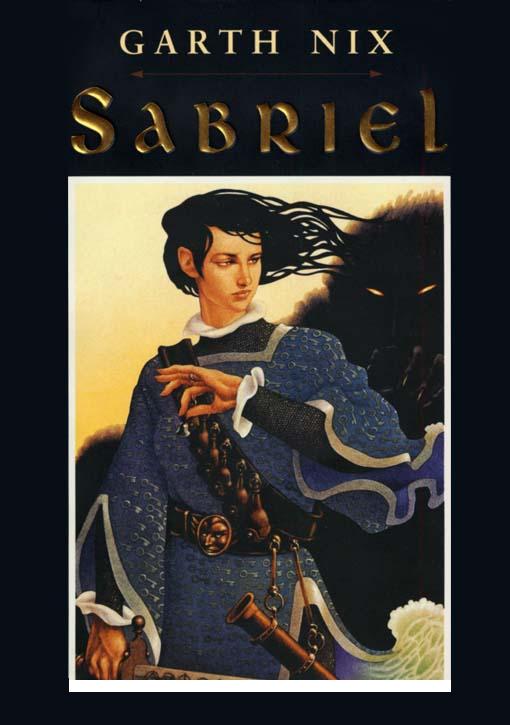 This is a fantastic trilogy with a really unique magical premise. In book one we meet Sabriel, a young woman attending boarding school in a country similar to early 20th century England. She is summoned by her father, the Abhorsen – a sort of reverse Necromancer, using controlled Charter magic to send the walking dead back to where they come from. Sabriel then has to take the dangerous journey to the Old Kingdom, to find her father and learn the tasks of the Abhorsen. The books are set in a sophisticated and well developed magical universe. The main characters all grapple with loss as the driving force that helps them bravely accept their destiny. I can’t recommend these books highly enough.
This is a fantastic trilogy with a really unique magical premise. In book one we meet Sabriel, a young woman attending boarding school in a country similar to early 20th century England. She is summoned by her father, the Abhorsen – a sort of reverse Necromancer, using controlled Charter magic to send the walking dead back to where they come from. Sabriel then has to take the dangerous journey to the Old Kingdom, to find her father and learn the tasks of the Abhorsen. The books are set in a sophisticated and well developed magical universe. The main characters all grapple with loss as the driving force that helps them bravely accept their destiny. I can’t recommend these books highly enough.
Dangerous Angels, Francesca Lia Block
Start with Weetzie Bat
 The setting is Los Angeles, less in the state of California and more in a state of magic. Weetzie Bat, a punk rock dreamer of a girl, and her best friend Dirk live in his grandma’s cottage, where they find a genie lamp and make a wish for love. Weetzie finds her match in the brooding film maker, her Secret Agent Lover Man, while Dirk falls in love with a freckly surfer boy named Duck. And as the series starts off with love and friendship, it is the magical power of love in its many forms that drives all the books and the diverse and captivating cast of characters. Love that can’t be returned, and love for something intangible, love as a cure against loss and tragedy, and as inspiration for art and poetry, all of it steeped in a mix of hazy magic and gritty reality. Block also handles very sensitive topics – abortion, AIDS, being adopted – in gentle and lyrical ways.
The setting is Los Angeles, less in the state of California and more in a state of magic. Weetzie Bat, a punk rock dreamer of a girl, and her best friend Dirk live in his grandma’s cottage, where they find a genie lamp and make a wish for love. Weetzie finds her match in the brooding film maker, her Secret Agent Lover Man, while Dirk falls in love with a freckly surfer boy named Duck. And as the series starts off with love and friendship, it is the magical power of love in its many forms that drives all the books and the diverse and captivating cast of characters. Love that can’t be returned, and love for something intangible, love as a cure against loss and tragedy, and as inspiration for art and poetry, all of it steeped in a mix of hazy magic and gritty reality. Block also handles very sensitive topics – abortion, AIDS, being adopted – in gentle and lyrical ways.
Song of the Lioness, Tamora Pierce
Start with Alanna: The First Adventure
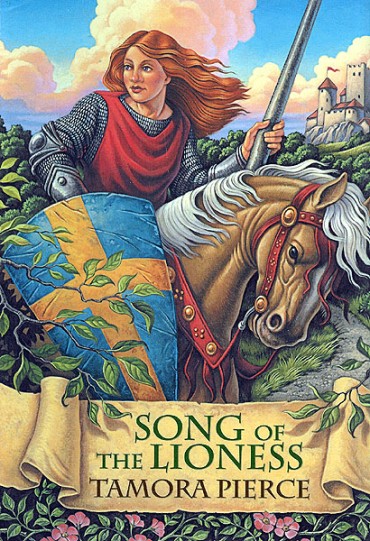 Tamora Pierce has been getting it right for decades with diverse characters and satisfying plot lines, and this is the series that started my love for her books. Alanna, the main protagonist, pretends to be a boy and enlists for training in hopes of becoming a knight. She builds friendships, as well as makes some enemies, while also discovering her full potential, accepting her flaws and learning to be independent. There are certainly some fantastic elements of magic and romance in the books, but Pierce handles them in such a thoughtful way, they seem as relatable as any other part of a young girl’s coming of age. I re-read the series recently and found the books just as engaging as when I first read them almost 20 years ago.
Tamora Pierce has been getting it right for decades with diverse characters and satisfying plot lines, and this is the series that started my love for her books. Alanna, the main protagonist, pretends to be a boy and enlists for training in hopes of becoming a knight. She builds friendships, as well as makes some enemies, while also discovering her full potential, accepting her flaws and learning to be independent. There are certainly some fantastic elements of magic and romance in the books, but Pierce handles them in such a thoughtful way, they seem as relatable as any other part of a young girl’s coming of age. I re-read the series recently and found the books just as engaging as when I first read them almost 20 years ago.
His Dark Materials, Philip Pullman
Start with The Golden Compass
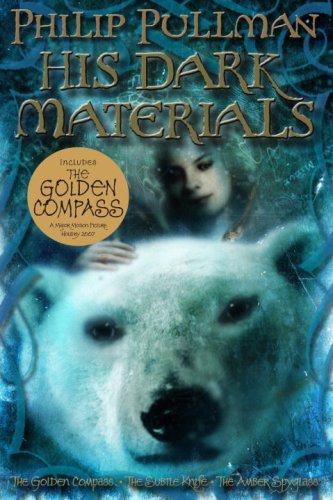 One of the most beloved and popular series, Pullman’s multiverse has it all: a strong heroine and hero in Lyra Belacqua and Will Parry; animal soul companions (daemons); interesting blend of science, magic and theosophy; adventurous expeditions and challenges when confronting powerful conspirators. It’s such an interesting world the author has built that it would be a disservice to summarize the plot; plus, most of you are probably familiar with the books, so I’ll just say that you should go read them if you haven’t, and re-read them if you have, and we’ll all be better for it.
One of the most beloved and popular series, Pullman’s multiverse has it all: a strong heroine and hero in Lyra Belacqua and Will Parry; animal soul companions (daemons); interesting blend of science, magic and theosophy; adventurous expeditions and challenges when confronting powerful conspirators. It’s such an interesting world the author has built that it would be a disservice to summarize the plot; plus, most of you are probably familiar with the books, so I’ll just say that you should go read them if you haven’t, and re-read them if you have, and we’ll all be better for it.
Ash; Huntress, Malinda Lo
Malinda Lo’s writing is a recent favorite. We are introduced to a fairy tale world through Ash, a clever and touching retelling of the Cinderella story. Ash is a girl traumatized by the passing of her parents, now living with a harsh step-mother, and she makes some desperate efforts to find love and magic to help her cope with life. The unexpected happens when she develops a tender friendship and falls in love with Kaisa, the King’s Huntress. The story’s universe is further extended in the second book, Huntress, which takes place many years before Ash and the beautiful storytelling and world building is inspired by Malinda Lo’s own Chinese heritage. Both novels treat young love between lesbian characters in such a tender and realistic way, it reminds me all the more how disappointing it is that this sort of treatment isn’t done in fantasy fiction more often.
Other notable series:
- Provost’s Dog, by Tamora Pierce (start with Terrier): A prequel set in Tortall about 200 years prior to the events in Song of the Lioness, this highly praised series features strong female protagonists, as well as several LGBTQ characters
- The Gemma Doyle series, by Libba Bray (start with A Great and Terrible Beauty): This popular series, set at the end of the 19th century in England, follows the challenges faced by a teenage girl, Gemma Doyle, who discovers she has clairvoyant and magical powers that connect her to realms beyond our world. The books explore themes of friendship between girls, struggle for power, society and its chastisement of “flawed” individuals.
- The Earthsea Trilogy, by Ursula K. LeGuin (start with A Wizard of Earthsea): Our own Lois Payne is currently reading the series as a palate cleanser after reading three Orson Scott Card books in a row. This beloved fantasy classic has some of the best world building this side of Tolkien, as well as a great story of triumph and redemption. And there are some dragons, maybe.
- Divergent, by Veronica Roth (start with Divergent): In Roth’s dystopian series, young people are sorted into factions in society based on set virtues (Candor, Dauntlessness, etc). The title refers to the instance where a youth (a Divergent) qualifies for more than one virtue, which is the case with the main protagonist, a girl named Tris. An interesting take on themes like government control, social choices and duty.
- The Inheritance Trilogy, by N. K. Jemisin (start with The Hundred Thousand Kingdoms) and The Last Herald Mage, by Mercedes Lackey (start with Magic’s Pawn): Both of these series come highly recommended but aren’t classified as YA. However, given that the protagonists are young people and their coming of age stories are set in fantasy realms, I’m including the books here. Jemisin’s series weave together mythology and political intrigue to create high fantasy with a gritty, modern edge, while Lackey’s much loved classic is one of the earliest to introduce us to a gay male protagonist in a fantasy universe.
As I’d mentioned, this is not at all a complete list and it’s ever growing. Current trends indicate that fantasy is still standing strong within YA literature in general, but we are seeing more books that are character driven and set the plot within worlds slightly more similar to our own. That is why there is a rise in popularity for dystopian fiction, like The Hunger Games and Divergent series, as well as books by authors like China Mieville and Malory Blackman. There is also a growing genre of fairy tales reinvented by authors (Malinda Lo, Shannon Hale for example) as well as TV shows such as Once Upon a Time and Grimm. Uniting all these new books is one common element, much to the chagrin of the Wall Street Journal, which is the fact that YA literature these days tackles much darker, more mature themes than in decades past. Some may view this is a loss of innocence, but I consider it a great improvement, as authors, editors and the publishing industry finally are giving adolescent readers due credit and respect. (By the way, read this great rebuttal to the WSJ article written by Jackie Morse Kessler, whose book Rage was included in that list of “too dark” reading.) Even through otherworldly settings, magic and super-human powers, impossible adventures, as well as slightly more nuanced stories of smaller, every day mysteries, younger readers can see a reflection of themselves that is far more accurate and relatable: they are complex, sometimes troubled or lonely, dealing with emerging identities and moral quandaries. Ultimately, YA is a genre that is constantly evolving and even adult readers can take a way a great deal from the books.
What are some of your favorite YA fantasy books? What characters and themes would you like to see more present in YA literature in general? Comment and join the conversation!

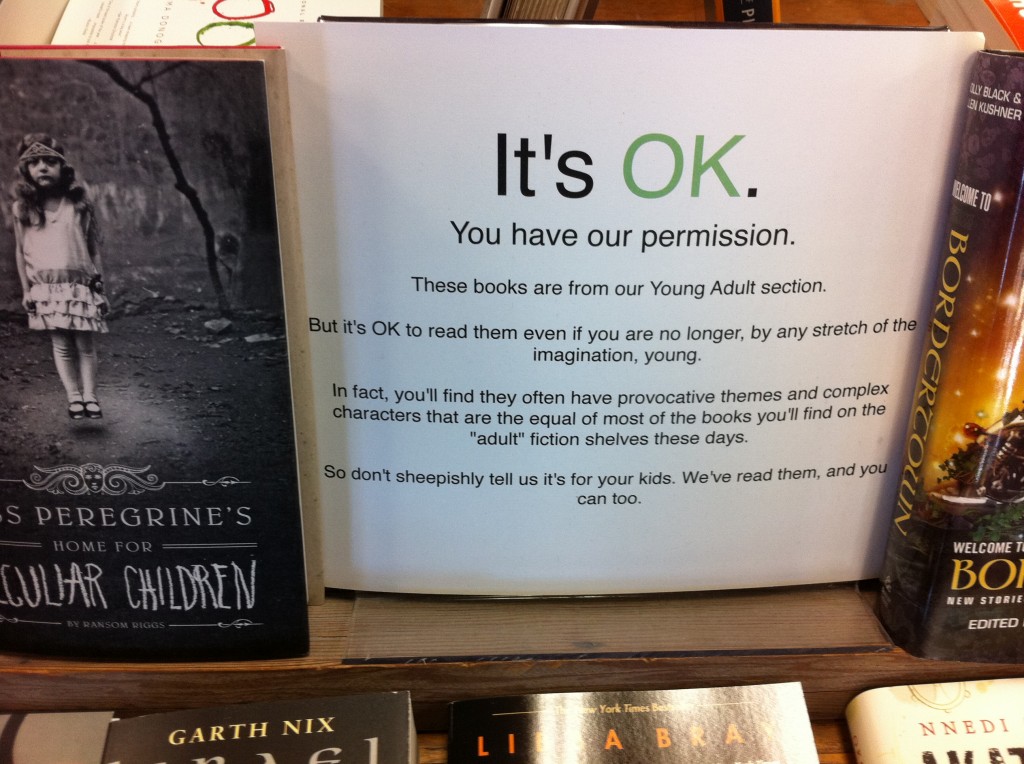
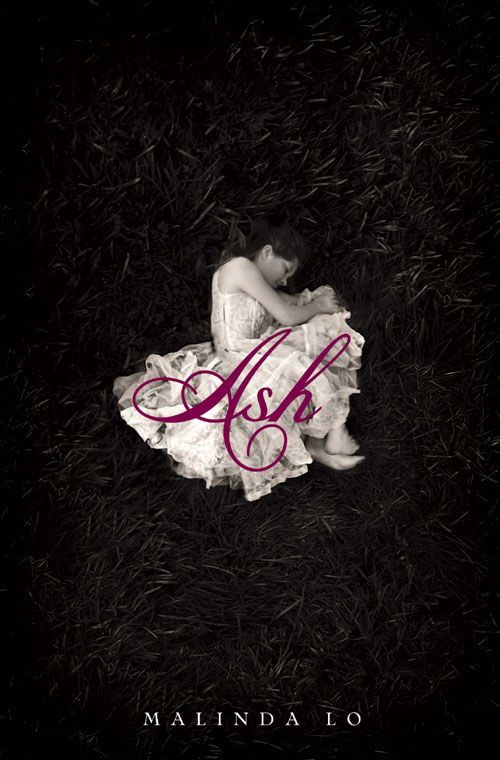
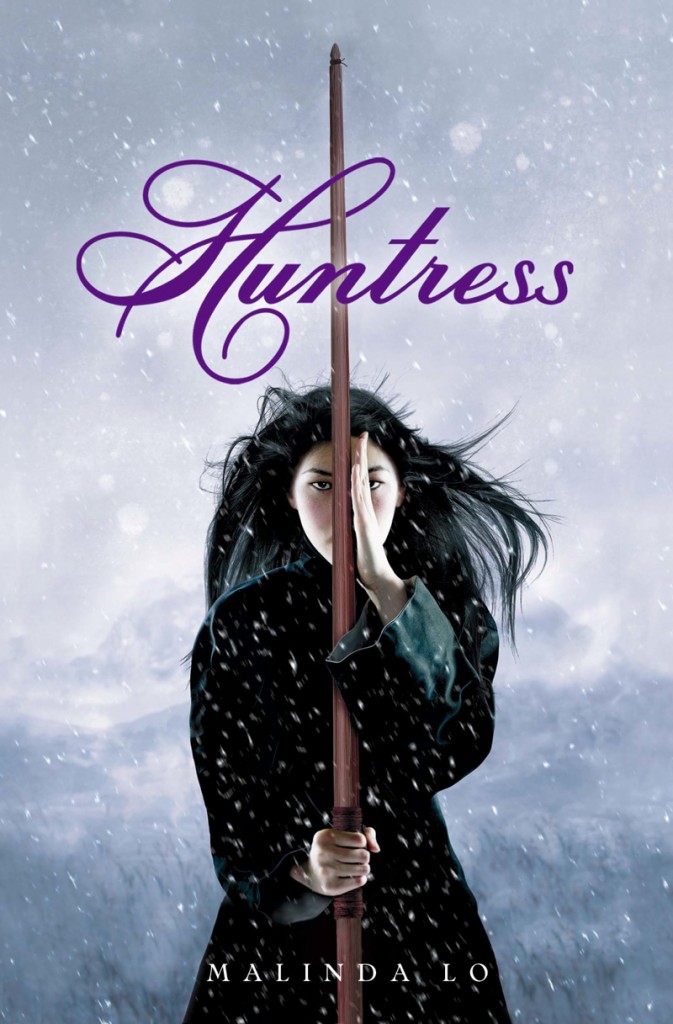

I know someone who is a creative writing MA student in London…she aspires to be a YA author, and Sabriel is one of her favorite books. She was definitely onto something! :D
Awesome! I wish her the best of luck. Well, if you haven’t read Sabriel yet, now you have twice the recommendations :)
YA fiction is far and beyond my favorite genre of fiction, and I rarely bother reading non-YA books, for pretty much all of the reasons you’ve stated here. Also because there’s a lot of pretentiousness in adult lit, but that’s a whole other issue.
Thank you for this list! In particular, thank you for introducing me to Ash and Huntress – I love fairy tale adaptations, and I love lesbians, so this combination is possibly the best thing that’s ever entered my life. Definitely have to buy those!
I agree, I feel like YA lit strides along that middle ground between being mature but also very accessible.
BTW, the author of Ash and Huntress has a website – http://www.malindalo.com – if you want to stay up to date with her writing. She frequently recommends her favorite new YA books, particularly ones with lesbian themes, and she’s working on a new novel series.
I’ve been a huge Tamora Pierce fan since I was twelve or so, but it wasn’t until fairly recently that I really appreciated her non-Tortall books. The Circle of Magic quartets, perhaps because they’ve never been as popular as Alanna and her legacies, manage to incorporate many characters of color and non-straight characters, and deal with some pretty heavy topics. Though the first quartet is ostensibly aimed at younger readers, there’s a lot in there that is fulfilling for adults as well; the second quartet and the companion novel The Will of the Empress are even edgier. I sort of think that if they were read more, they might actually meet some controversy from skittish authority figures!
Pingback: Friday Finds |